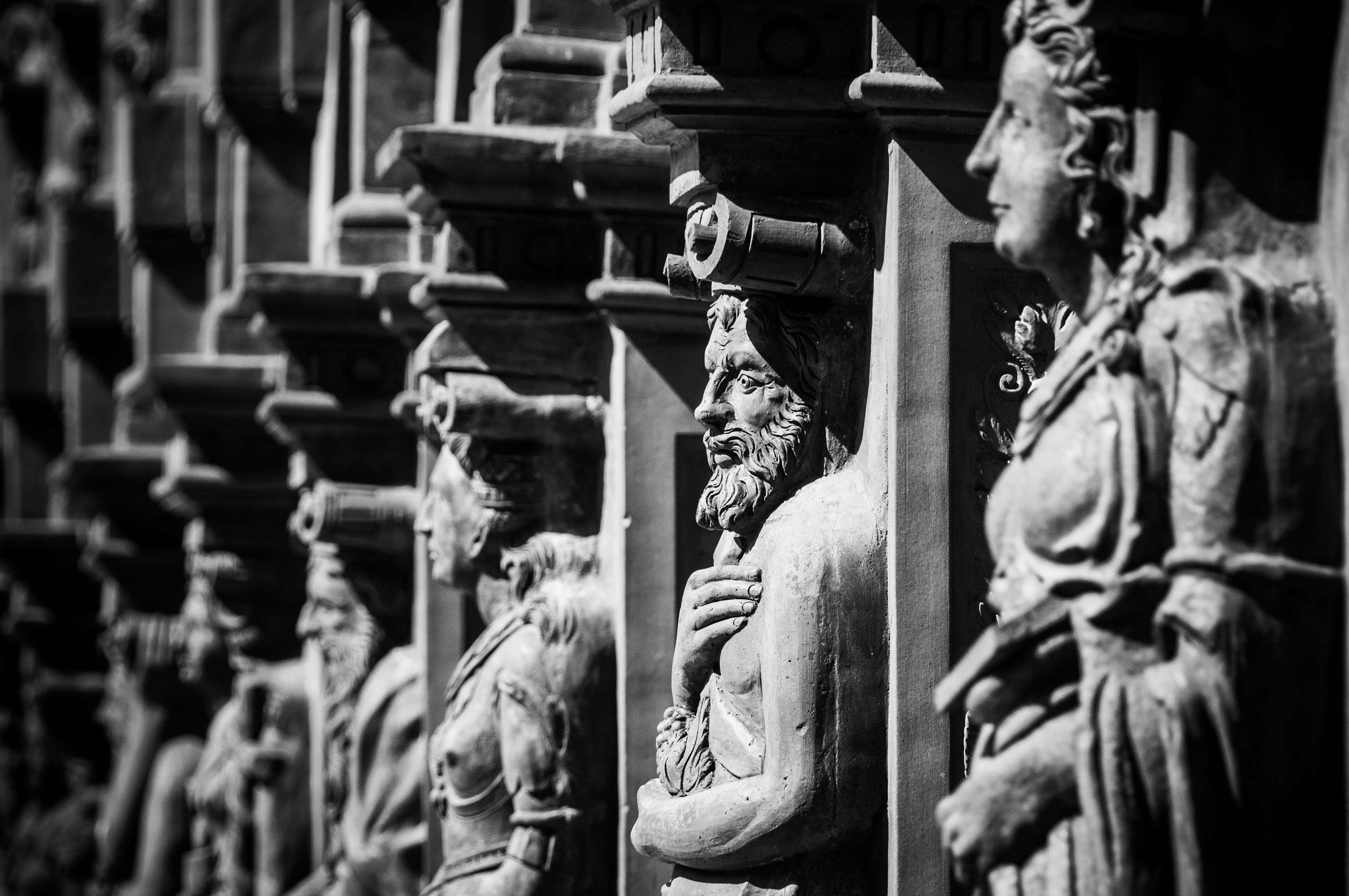The Renaissance, a period of cultural rebirth and intellectual growth that spanned from the 14th to the 17th century, left an indelible mark on various aspects of human civilization. One area that experienced a profound transformation during this era was English literature. As the Renaissance swept through Europe, it brought about a renewed interest in the arts, literature, and humanism. This rekindling of intellectual curiosity and artistic exploration had a significant impact on literature in England.
During the Renaissance, thinkers and scholars began to question traditional beliefs and focus on the importance of human potential. This shift in mindset fueled the revitalization of literature by encouraging writers to experiment with new forms of expression. The exploration of human emotions, individualism, and the human condition became central themes in literary works. Writers like William Shakespeare, Christopher Marlowe, and John Milton emerged during this period, producing timeless masterpieces that continue to resonate with readers today.
In this blog post, we will delve into the impact of the Renaissance on English literature. We will explore the characteristics of Renaissance literature, the key elements that defined this era, and the influential thinkers who paved the way for literary greatness. Join us as we unravel the fascinating journey of how the Renaissance shaped English literature, paving the way for the literary heritage we cherish in the present day.

What is the Impact of Renaissance on English Literature?
A Flourishing Era for English Literature
The Renaissance, a period of rebirth and cultural awakening, left an indelible impact on English literature. It was a time when writers, poets, and scholars flourished, ushering in an era of creativity and intellectual exploration. Let’s delve into some key ways in which the Renaissance shaped English literature.
Resurrecting Classics: The Revival of Ancient Works
During the Renaissance, there was a renewed interest in the literature and philosophies of ancient Greece and Rome. English writers embraced the classical works of authors like Plato, Aristotle, and Homer, and themes from these ancient texts began to permeate English literature. Writers sought to emulate the eloquence and sophistication found in classical literature, imbuing their own works with a sense of grandeur.
Embracing Humanism: Celebrating Human Potential
Humanism, a philosophy that placed emphasis on human dignity, individualism, and the pursuit of knowledge, became a driving force in Renaissance literature. English writers began to focus more on human experience, emotions, and the complexities of the human condition. They explored themes of love, ambition, morality, and the pursuit of knowledge, presenting characters who grappled with these very human dilemmas. Thus, English literature of the Renaissance became more relatable and reflective of the changing times.
Influencing Language: Expanding Vocabulary and Expressiveness
English language owes a great debt to the Renaissance. During this period, English vocabulary expanded as scholars drew from Latin and Greek sources. The works of Shakespeare, Marlowe, and other playwrights popularized new words and expressions, reshaping the English language itself. The Renaissance ushered in an era of linguistic creativity and innovation, leaving an enduring impact on the development of English literature.
Print Revolution: Widening Access to Literature
The invention of the printing press revolutionized the dissemination of knowledge, including literature, during the Renaissance. Books became more accessible, reaching a wider audience than ever before. This facilitated the spread of ideas, allowing English literature to reach beyond the elite and be embraced by a broader range of readers. The print revolution was instrumental in democratizing access to literature and fueling the growth and popularity of English literary works.
A Bridge to Modernity: Paving the Way for Future Literary Movements
The Renaissance marked the transition from the medieval period to the modern era. It laid the foundation for future literary movements, serving as a bridge between the two. The ideas, themes, and literary techniques developed during the Renaissance influenced subsequent literary movements, such as the Enlightenment and Romanticism. The English literature of the Renaissance set the stage for centuries of literary evolution and innovation to come.
In conclusion, the impact of the Renaissance on English literature cannot be overstated. It reshaped the course of literary history, infusing it with new ideas, themes, and expressions. The revival of classical works, the celebration of human potential, the expansion of the English language, the increased accessibility of literature, and the paving of the way for future literary movements all contribute to the profound influence of the Renaissance on English literature.
So, the next time you delve into the works of Shakespeare or marvel at the poetic genius of Milton, remember that they are the products of a vibrant, transformative period in history—the Renaissance.

FAQ: Impact of Renaissance on English Literature
1. Who is the first Mother of India
Who is the first woman to become the first Prime Minister of India
The first woman to hold the position of Prime Minister in India was Indira Gandhi. She served as the Prime Minister from 1966 to 1977 and again from 1980 until her assassination in 1984.
2. What is the impact of Renaissance on English literature
How did the Renaissance revolutionize English literature
The Renaissance had a profound impact on English literature, transforming it into a dynamic and vibrant period of artistic and intellectual growth. Key impacts of the Renaissance on English literature include:
Renaissance Thinkers Rekindling the Flames of Creativity
During the Renaissance, scholars and thinkers rediscovered classical works from Ancient Greece and Rome, inspiring new ideas and artistic expressions. This influx of knowledge fueled a reawakening of creative energy, resulting in groundbreaking literary masterpieces.
Shaping the Literary Canon
The Renaissance era led to the emergence of timeless playwrights, poets, and novelists who shaped the English literary canon. Writers like William Shakespeare, Christopher Marlowe, and John Milton not only produced works that defined English literature but also influenced the world of literature for centuries to come.
Embracing Humanism’s Influence
Humanism, a philosophical movement emphasizing the importance of human potential, played a significant role in Renaissance literature. Writers explored human emotions, individualism, and the complexities of the human experience, breathing life into their characters with depth and realism.
3. Who is known as daughter of India
Who is commonly referred to as the “Nightingale of India”
The beloved Indian poet, freedom fighter, and social activist Sarojini Naidu is often referred to as the “Nightingale of India.” Her eloquent verses and fervent advocacy for women’s rights left an indelible mark on Indian literature and society.
4. Who named science
Who is credited with coining the term “science”
The term “science” traces its origins to the 13th-century English philosopher and theologian Roger Bacon. Bacon is credited with popularizing the use of the word “science” to describe the systematic study and understanding of the natural world.
5. What were the Renaissance thinkers called
What is another term for Renaissance thinkers
Renaissance thinkers were commonly referred to as humanists. These intellectual trailblazers placed a strong emphasis on human potential, individualism, and the importance of education and reason.
6. What are the characteristics of Renaissance literature
What defines Renaissance literature
Renaissance literature is characterized by several distinct features:
1. Rebirth of Classical Influence:
Renaissance writers drew inspiration from the works of ancient Greek and Roman authors, incorporating classical themes, myths, and literary forms into their own works.
2. Humanism and Individualism:
Renaissance literature shifted its focus from religious devotion to celebrating the capabilities and complexities of the individual. Human emotions, experiences, and intellect became central themes in literary works.
3. Artistic Experimentation:
Writers during the Renaissance explored new literary forms and techniques, such as sonnets, blank verse, and the use of dramatic irony. This experimentation pushed the boundaries of traditional storytelling.
7. What are the elements of Renaissance
What contributed to the essence of the Renaissance
Several key elements contributed to the essence of the Renaissance:
1. Humanism:
The belief in the inherent value and potential of human beings became a core principle of the Renaissance, influencing all facets of culture, including literature.
2. Secularism:
The Renaissance marked a shift away from the dominant influence of religion in society and literature. Secular topics and perspectives gained prominence.
3. Emphasis on Education:
Education was highly regarded during the Renaissance. Scholars pursued knowledge across various disciplines, resulting in a more well-rounded approach to literature.
4. Rediscovery of Classical Works:
The Renaissance witnessed a renewed interest in the ancient literary and philosophical works of the Greeks and Romans. These texts served as a great source of inspiration for Renaissance writers.
8. Why Germany is called Fatherland
Why is Germany commonly referred to as the “Fatherland”
The term “Fatherland” or Vaterland in German is used to evoke a sense of patriotic attachment to one’s country. In the case of Germany, the term was particularly associated with the idea of a united German nation during the 19th century when Germany was striving for independence and unity.
9. Who is the mother of biology
Which scientist is often hailed as the “Mother of Biology”
The remarkable German scientist Maria Sibylla Merian is often hailed as the “Mother of Biology.” Her groundbreaking observations and meticulous illustrations of insects and plants laid the foundation for the study of entomology and contributed significantly to the field of botany.
10. Who is the father of natural philosophy
Who is considered the “Father of Natural Philosophy”
The renowned Greek philosopher Aristotle is often referred to as the “Father of Natural Philosophy.” His works encompassed a wide range of subjects, including physics, biology, ethics, and politics, making him one of the most influential thinkers in human history.
11. Who is the father of science
Which scientist is widely regarded as the “Father of Science”
The esteemed Italian polymath Galileo Galilei is widely regarded as the “Father of Science.” His groundbreaking discoveries in physics, astronomy, and mathematics revolutionized scientific thought, laying the foundation for modern scientific principles and methodologies.
12. What are the 3 most important characteristics of the Renaissance
What are the three fundamental characteristics of the Renaissance
The Renaissance is defined by three crucial characteristics:
1. Humanism:
The Renaissance placed a strong emphasis on the capabilities, potential, and worth of individual human beings.
2. Artistic Expression:
The period was marked by a surge of creativity in various art forms, including literature, painting, sculpture, and architecture.
3. Intellectual Curiosity:
The Renaissance fostered an insatiable thirst for knowledge, leading to advancements in various fields, such as science, mathematics, and philosophy.
The impact of the Renaissance on English literature was profound, resulting in a flourishing of creativity, the emergence of literary giants, and a shift in focus towards human experiences. Through its influence, the Renaissance continues to shape and inspire the world of literature even today.
Keep exploring, keep writing, and let the spirit of the Renaissance guide your literary endeavors!
